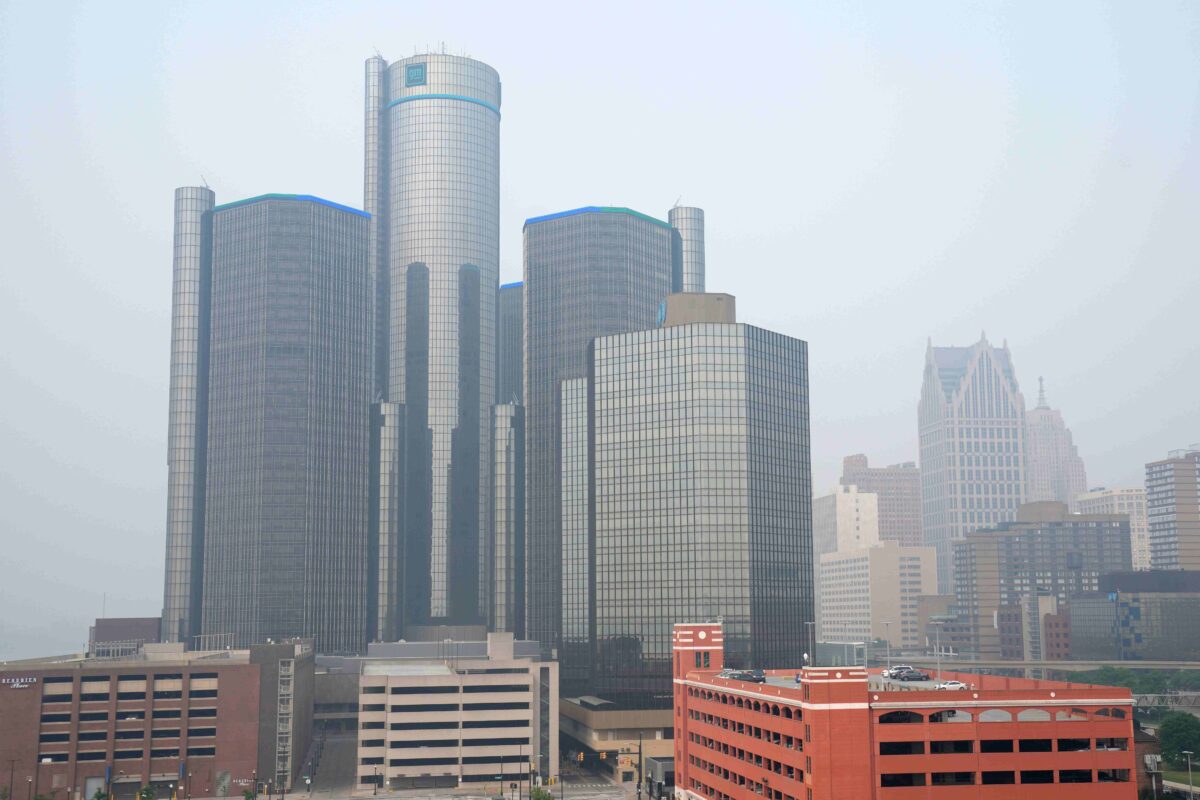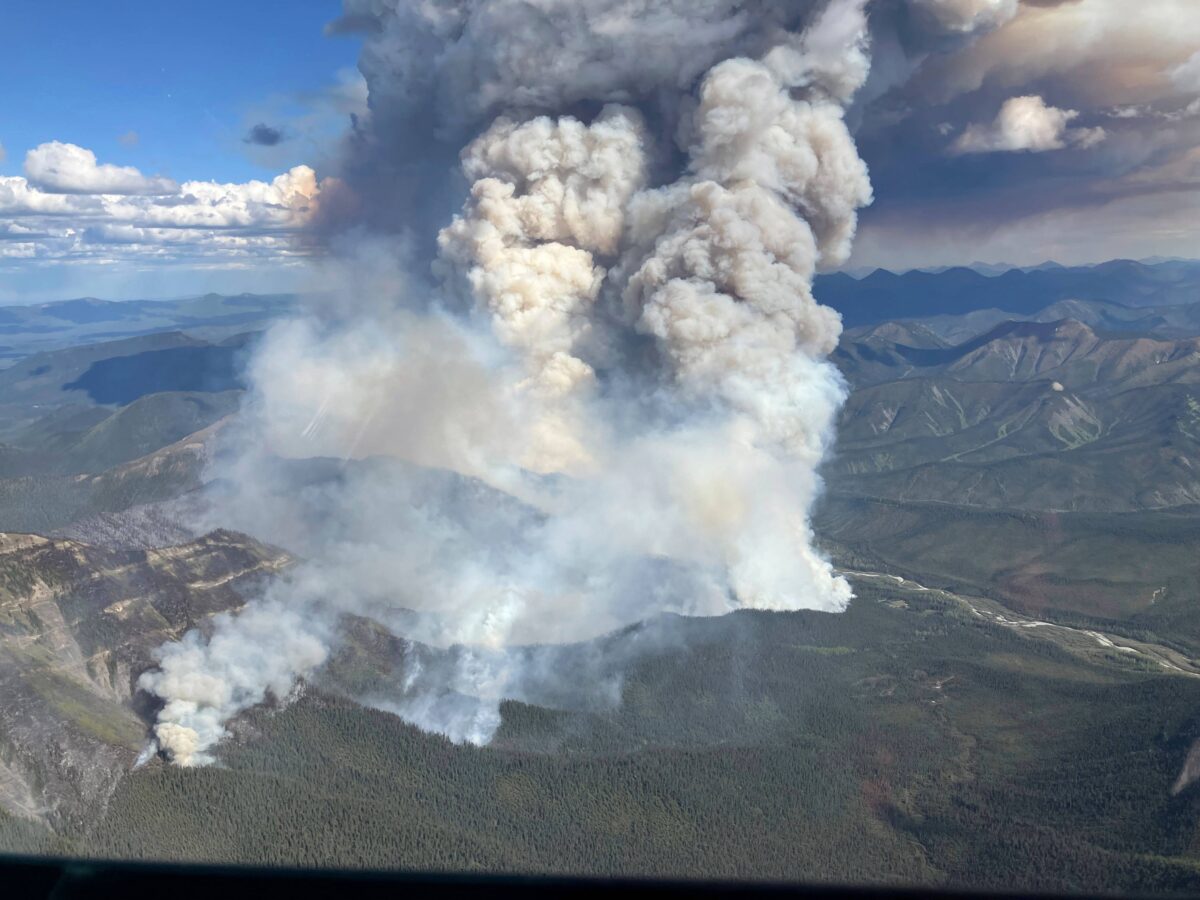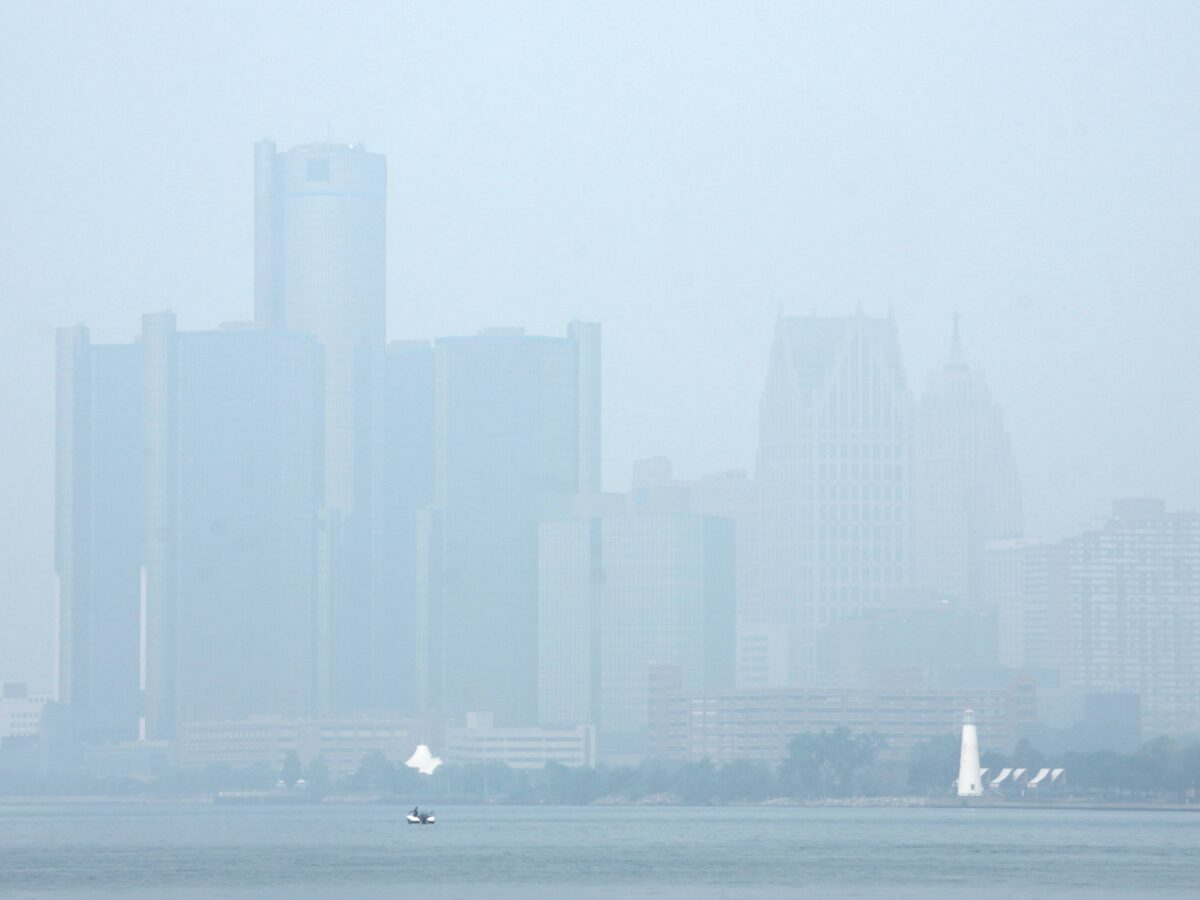Overview:
-As Detroit's air is impacted by wildfire smoke more often, Planet Detroit breaks down guidance on how to cope.
-Wildfire smoke poses a significant health risk to vulnerable populations.
-One tip from the CDC: choose a room you can close off from outside air.
Wildfire smoke poses a health risk to everyone, but certain individuals are more susceptible to illness.
Wildfires in Canada caused severe air quality issues in Detroit in 2023, impacting residents with preexisting health conditions and vulnerable populations – and may have killed more than 100 people in Michigan alone. And the summer of 2025 is off to a rough start.
Who’s most affected by wildfire smoke?
- People with chronic conditions like asthma, chronic obstructive pulmonary disease (COPD), diabetes, chronic kidney disease, or heart disease, according to the Centers for Disease Control and Prevention.
- Those who are pregnant.
- Children.
- Wildfire first responders.
Wildfire smoke health impacts
- Coughing, trouble breathing, wheezing.
- Asthma attacks.
- Stinging eyes, scratchy throat, runny nose.
- Headaches.
- Tiredness.
- Chest pain, fast heartbeat.
MORE AIR QUALITY COVERAGE
Another day of hazy Detroit air as Canadian wildfire smoke spreads
Smoke from Canadian wildfires impacts air quality across the Midwest, with PM2.5 as the main pollutant, affecting vulnerable groups. Over 27,000 Canadians have been evacuated, and the smoke has even reached Europe.
Wildfire smoke from Canadian blazes threatens Detroit air quality
Michigan issues air quality advisory due to smoke from wildfires in Canada’s Manitoba province, where 17,000 people are under evacuation orders.
Wildfire smoke forecast: Will Michigan catch a break this summer?
Canada is unlikely to see the kind of megafires that drove the 2023 smoke season in Detroit, experts say. Yet parts of Canada and the U.S. could still see large fires and send smoke to Michigan.
What to do when the air is smoky
- Choose a room you can close off from outside air, according to guidance from the CDC.
- Set up a portable air cleaner or a filter to keep the air in this room cleaner even when it’s smoky outdoors or in the rest of your home.
- Avoid burning anything indoors, including candles, gas, propane, incense, wood, or cigarettes.
- If you have a central air conditioning system, use high efficiency filters (MERV 13 or higher if your system can use it) to help clean the air. If your system has a fresh air intake, set the system to recirculate mode or close the outdoor intake damper.
- If you have to go outside, wear a respirator. Reduce your smoke exposure by wearing a NIOSH approved respirator. A respirator is a face covering that fits tightly to your face to filter out smoke before you breathe it in.
- Keep track of fires near you. Listen to the Emergency Alert System and National Oceanic and Atmospheric Administration Weather Radio for emergency alerts.
- Monitor fires in your area using mapping tools, like AirNow’s Fire and Smoke Map and NOAA’s fire weather outlook.





